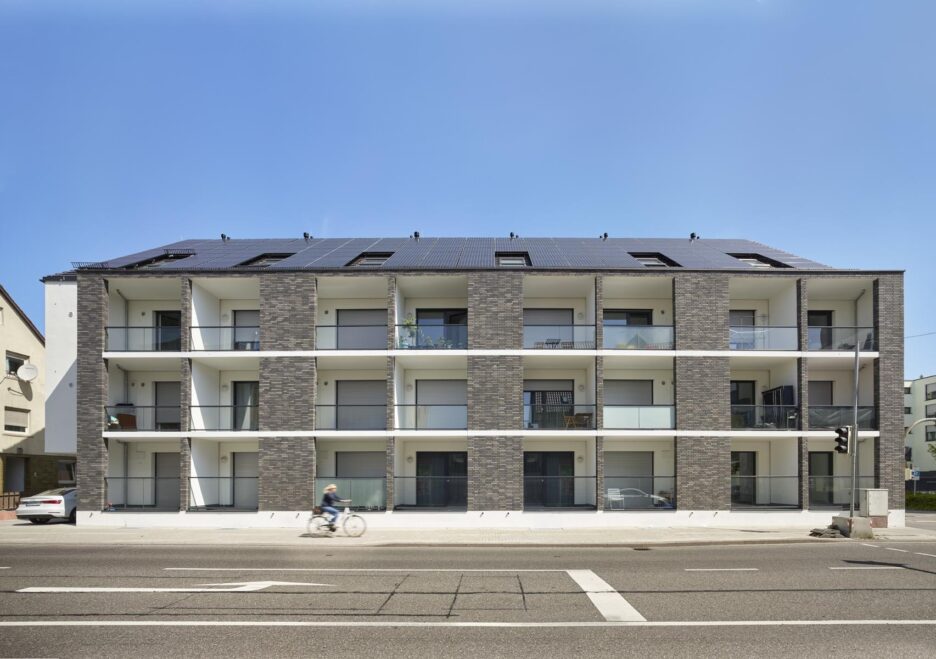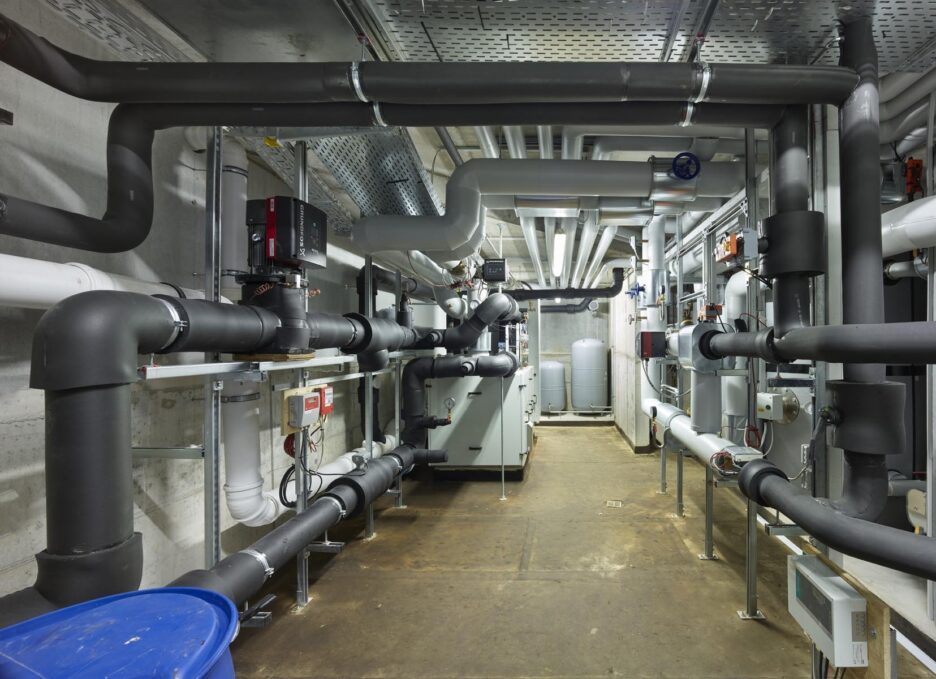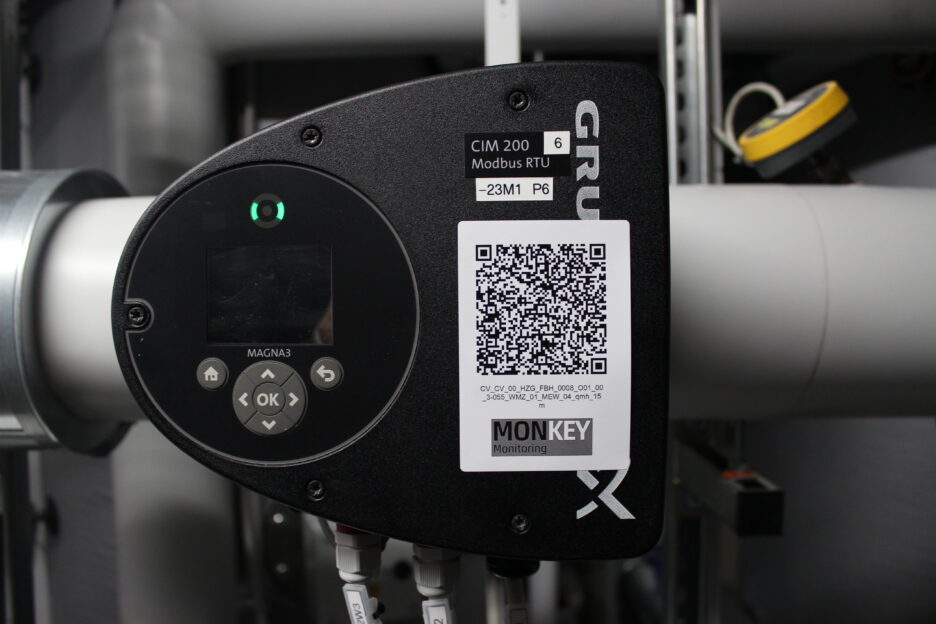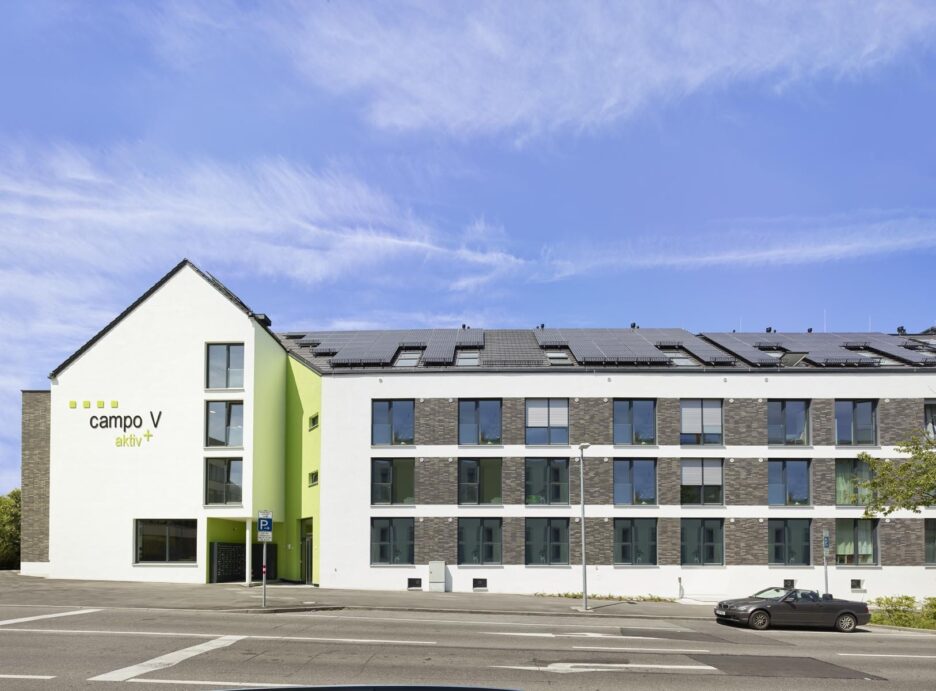Implementation, monitoring and operational optimization of a nearly climate-neutral building - "AktivPLUS student residence campoV"
Back to project overviewProject description
The AktivPLUS student residence built in Stuttgart-Vaihingen in 2018 demonstrates the implementation of a virtually climate-neutral building standard by reducing energy requirements and using solar energy. Wohnbau-Studio Planungsgesellschaft acquired several plots of land in the center of Stuttgart-Vaihingen for this purpose, on which several dilapidated apartment buildings still stood. The existing buildings were demolished and replaced by a new building. The result is a student residence with 126 residential units on an inner-city site. The living space covers around 2,644 m². The student residence is located on a busy road or intersection in Stuttgart-Vaihingen and therefore has particularly high requirements for noise protection against external noise. The aim of the project was to build the first German student hall of residence that generates more energy than it consumes during operation. The student residence was scientifically monitored and evaluated by siz energieplus over a period of three years.
In addition to an innovative energy concept, technical support during commissioning and detailed technical monitoring including operational optimization, the project also included the implementation of a user app specially developed for this purpose, which residents can use to monitor their own energy consumption.
The Federal Republic of Germany has set itself ambitious climate protection targets and anchored them in the federal government's energy concept. This sets out sub-targets and the scale up to 2050. The triad of a 40 % reduction in greenhouse gas emissions and a 20 % reduction in primary energy consumption with a simultaneous increase in the proportion of renewable energies to 20 % for the first step by 2020 is a comprehensive task for society as a whole. The new construction of the "AktivPLUS student residence" is intended to fall considerably short of these targets.
With low-investment measures, an increase in energy efficiency and a reduction in operating costs are to be achieved with the help of operational optimization. Due to the use of innovative technologies and the goal of the EnergiePLUS standard - building of the future - energy-related operational optimization (EnBop) is essential.
The innovative technologies required for this standard are systematically commissioned using newly developed planning tools and monitored automatically on an ongoing basis. The operating data, building performance and interior quality can be displayed in a differentiated manner using the integrated measuring and monitoring infrastructure. A user interface for the residents, which is being developed by mondayVision as part of this project, ensures transparency and acceptance of the sustainable project. The user app is tailored to the visualization of the energy consumption values of the individual residential units and supplemented with additional functions. It will be available to each resident via an app.
The aim of the project is to implement a holistic, innovative energy concept that achieves the almost climate-neutral building standard as well as the 'nearly-zero-energy-building' standard (lowest-energy building) in accordance with EU requirements. The innovative technologies and methods required for these standards will be demonstrated and evaluated in practice. In the context of use (students) and location, the student hall of residence with its inner-city location is a particularly valuable demonstration project for pursuing the goals of the German government's National Action Plan for Energy (NAPE).
Our services in the 2018-2021 processing period
- Creation and implementation of a holistic, innovative energy concept (EGS-plan GmbH)
- Building physics planning and implementation (EGS-plan GmbH)
- HVAC and ELT planning (EGS-plan GmbH)
- Research project over 3 years: with monitoring and operational optimization over 3 years:
- Creation and implementation of a detailed monitoring concept: All energy flows in the building (electricity, heating and DHW demand) are monitored as well as all energy generated in the building, drawn from the grid or fed into the public grid. This enables a fully comprehensive energy balance of the building. Approx. 1,000 data points in the building were given a unique data point key and prepared for monitoring (time interval 1 to 15 min)
- Quality-assuring commissioning support: regular site inspections for quality-assuring support during construction and commissioning, checking the implementation of the requirements for system technology and the measuring equipment required for monitoring
- Detailed technical and energy monitoring and operational optimization: monitoring and optimization of the technical systems in the building during the commissioning phase and during operation, monitoring of energy consumption with regard to the "AktivPlus" objective, observation and optimization of living space comfort, sensitization of residents with regard to energy-saving and resource-conserving living and usage behaviour
- User interface (from the company mondayVision) for residents to check energy consumption values and other functions (e.g. availability of washing machines, information on parcel delivery): Availability of washing machines, information on parcel delivery and much more).
- Wohnbau-Studio Planungsgesellschaft mbH & Co. Bauträger KG, Stuttgart
- Steinbeis Innovation Center (SIZ) Energy, Building and Solar Technology, Stuttgart
- mondayVision UG, Stuttgart
- HHS PLANER + ARCHITEKTEN AG, Kassel
The R+D project is divided into five scientific and technical work packages. The focus of the work is on monitoring and optimizing the operation of the system with regard to high self-consumption of electricity and mapping the EnergiePLUS standard as well as comfort in the living spaces.
WP1 Development, implementation and commissioning of "AktivPLUS student residence"
- Concept development, quality assurance in the planning and construction phase
- Assistance with commissioning
- Use of simulation tools to optimize the energy concept (reduction of demand - generation of energy from renewable sources)
- Cost/benefit analysis of technologies
- Full cost analysis - total annual costs (energy, maintenance and operating costs)
WP2 Measurement and monitoring concept
- Definition of target indicators for system and building performance
- Development and implementation of a monitoring concept for checking and quality assurance of energy and comfort performance
WP 3 Development and testing of operating strategies
Development and evaluation of innovative operating strategies for student residences:
- High energy efficiency and increasing the proportion of self-generated electricity (combination of photovoltaic system, electricity storage and electrically powered heat pump in the building's energy supply concept)
- Use of regenerative low-ex heat sources (geothermal energy)
- Ensuring thermal and hygienic indoor comfort
WP 4 Implementation and evaluation
- Implementation and testing of the operating strategies developed in WP 3
WP 5 Project communication
- Dissemination of experience and results from planning, construction and operation
The results of the monitoring can be found here.



